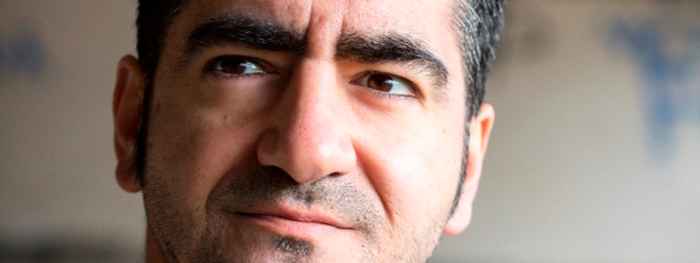Murat Isik studied to become someone else
15 juni 2022

Here you are not the boy from the Bijlmer, the voice said
I didn't go to university to become an academic, I went to university to become someone else. I went to study to throw off the mask that had choked me for years and kept me hidden from the outside world. I went to study to find myself. But I could not have put it into words that way when, as a seventeen-year-old, on a September day in 1995, I reported hesitantly to the famous Oudemanhuispoort, where the Amsterdam Law School was then located. In fact, although I was starting a promising chapter in my life, 'my old self' was still resisting: I had stayed away from the introductory days and had not once opened the study guide, so I had no idea who or what was waiting for me in the stately building on the Oudezijds Achterburgwal.
The study of law turned out to be such a massive study that during the first weeks I felt lost in the swaying crowd, which was not only intimidatingly large, but also foggy. To my horror, they smoked in the hall, which was blue with students puffing away, and I had to cough my way to the lecture halls. And I felt like an outsider those first days, just like in the Bijlmer, where I grew up, but which I wanted to escape from after the decay started. I wrote the novel Wees onzichtbaar (Be invisible) about that period. But at the Oudemanhuispoort there was also a voice in my head, speaking to my then seventeen-year-old self, saying that this was the chance to do everything differently. Here you are not the boy from the Bijlmer, the voice said. Here you are not 'the cleaner.' Here, you can become someone who is more social and accessible than the bashful boy you always were in Amsterdam-Zuidoost. During the first six months, I hardly bothered with law studies. The material was dry as a bone and hardly interested me, because I felt: my school is not about the law, but about people.
In the study hall, where I sat every day, I did not study my textbook but my fellow students, who bent over their law books fanatically and apparently could not wait to appear before a judge in a toga, a thought that horrified me. To be honest, at the time I did not think I had what it takes to succeed in law school. I thought it was too ambitious, but for form's sake I gave it a try because it was my parents' great wish that I complete university studies. I just had no idea what I wanted to study, so when my father advised me to go for Law, it freed me from a difficult choice.
Soon I met a group of like-minded people with whom I spent long days at the faculty: we studied and ate together. And the Oudemanhuispoort became a kind of second living room for me. Meanwhile, the voice that had once whispered to me that I wanted to be a writer became louder and louder. With the arrival of the Internet, at the end of 1996, my writing fever was only increased: I sent long e-mails to friends, which resulted in colourful stories. And when I started writing for the student magazine Pelge in my third year, I found an audience for my short stories for the first time, and received praise that strengthened my conviction that one day I could be a writer.
In 2001, I went on an exchange programme to study in San Francisco for six months. It was a magical experience that shaped me in so many ways that I am currently writing a novel set in the same period. I worked as a lawyer for fourteen years after graduating, and I always wrote alongside it: it gave me air, and fed my creativity and dream. The legal work always felt like a sideline, something that eventually had to give way to the greater goal: living from writing. Three years ago, I quit my job as a lawyer for good and have been writing full-time ever since. If I had to do it all over again, I would never study law. But I will cherish my years at the Oudemanhuispoort forever.